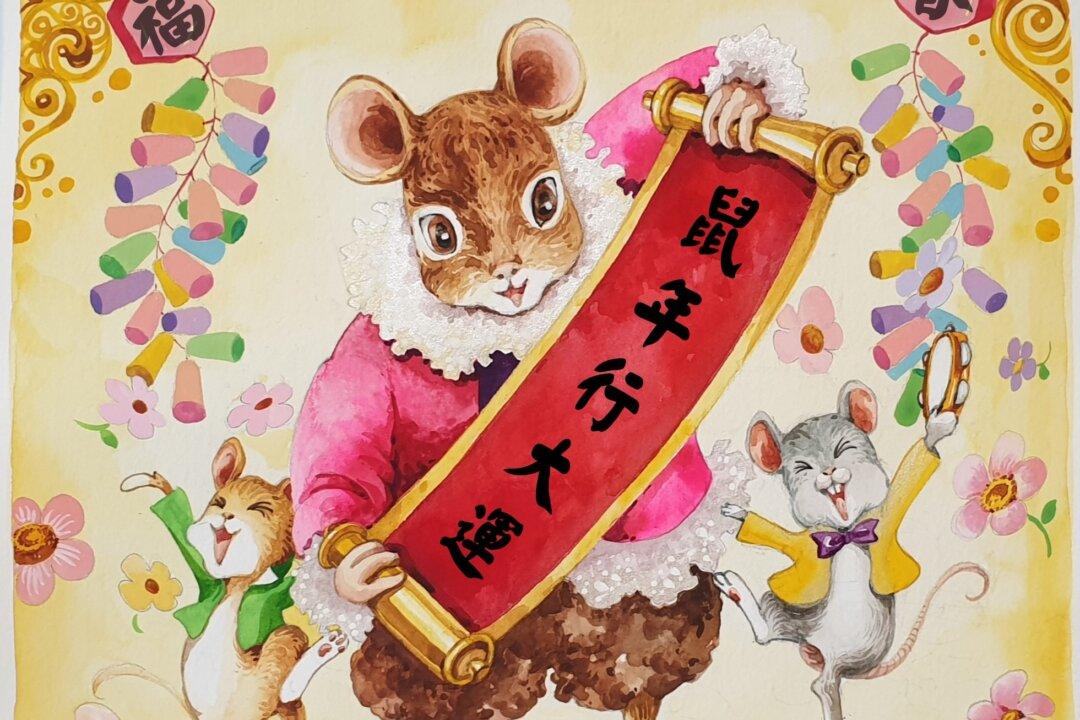夢 (mèng) is the Chinese character that stands for dream.
It is based on the character/radical夕, according to the first comprehensive Chinese etymological dictionary, “Shuo Wen Jie Zie” (說文解字), or “Explaining Simple and Analyzing Compound Characters.”
夕 (xī) refers to night or dusk, giving meaning to the character 夢 (mèng) which conveys the idea of not being in the brightness of daylight and thus not seeing clearly.
In addition, 夢 (mèng) has the same pronunciation as the character 瞢 (méng), which means obscured vision or eyesight, as stated in “Shuo Wen Jie Zie.”
Examples of terms that use 夢 (mèng) include 夢想 (mèng xiǎng), a dream, or literally “dream think,” to dream of something in one’s thoughts; 夢幻 (mèng huàn), a dream, fantasy, or illusion, literally “dream fantasy”; and 夢見 (mèng jiàn), to see in a dream, literally “dream see.”
Sleepwalking is called 夢遊 (mèng yóu), literally “dream travelling” or “dream journey,” where 遊 (yóu) means to travel, tour, roam, or walk.
夢境 (mèng jìng) refers to dreamland, literally a “dream place” or “dream territory.”
A nightmare is called 惡夢 (è mèng), literally “evil dream,” where 惡 (è) describes something that is evil, fierce, vicious, ugly, harmful, hateful, or loathsome.
夢兆 (mèng zhào) refers to an omen from a dream, literally a “dream omen” or “dream foretelling.”
One such “dream omen” that became an idiom is 夢筆生花 (mèng bǐ shēng huā), literally “a dream in which a pen/brush (筆, bǐ) grew (生, shēng) flowers (花, huā).”
The idiom is used as a metaphor to describe greatly improved writing skills or to depict a very well-written article.
The idiom originates from a story about famous Tang Dynasty poet Li Bai (李白), who at a young age had a dream that flowers bloomed from the end of his writing brush. It was regarded as a sign of brilliant literary talent, as the brush was a symbol of literary talent in ancient times.
Indeed Li Bai became a superior poet and is highly honoured as the “Immortal of Poetry” in China.
The phrase 人生如夢 (rén shēng rú mèng) states that “human life (人生, rén shēng) is like (如, rú) a dream,” conveying the idea that life is short and there is no real lastingness in worldly affairs.
A similar sentiment is expressed in the idiom 黃粱一夢 (huáng liáng yī mèng), literally “yellow millet (黃粱, huáng liáng) one (一, yī) dream,” often translated as “a vanished dream” or “a quickly faded dream of millet.”
The idiom comes from a story about a young scholar who lived out his entire life in a dream while his meal of millet was cooking in a pot.
In the dream, the course of his life was filled with drama and change, encompassing honour and wealth as well as disgrace and upheaval. In the end, several decades passed in the blink of an eye.
The story advises people to realize the brevity of life and to take gains and losses in life lightly.



